Reviews and recommendations are unbiased and products are independently selected. Postmedia may earn an affiliate commission from purchases made through links on this page.
Anthony Gismondi: After fire decimated Napa winery, owner got creative
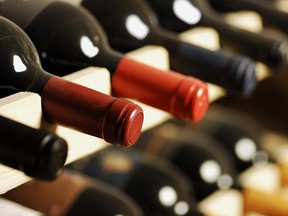
Ray Signorello has gone underground, constructing a cave winery that, unlike typical Napa caves, will house his wines at the perfect temperature
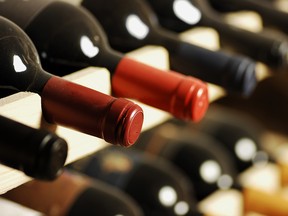
Article content
It has been seven years since we last spoke with West Vancouver’s Ray Signorello Jr., the owner of Signorello Estate Winery in Napa Valley. Not long after, his winery burned to the ground in minutes during the infamous Atlas Wildfire of 2017, which destroyed 783 structures, damaged 120 structures and caused six fatalities.
Since then, Signorello has endured the indignities of dealing with tone-deaf insurance companies, a worldwide pandemic, and the strictest building codes on the continent, only to come out stronger on the other side of a reconstruction project that has resulted in the next iteration of Signorello Estate Winery, a facility he thinks is Napa Valley’s first 100 per cent fireproof property.
Advertisement 2
Article content
Ultimately, the insurance companies involved only covered 25 per cent of Signorello’s losses. Still, he is back in the game with a high-tech winery, albeit invisible to anyone driving along the Silverado Trail. Signorello has gone underground, constructing a cave winery that, unlike typical Napa caves, will house his wines at the perfect temperature and accommodate a state-of-the-art, fully functional underground production facility.
As you head up the long driveway toward the former winery, there is no trace of the reconstruction save for a pair of “cellar” doors carved into the same hillside the fire raged down, wiping out the family estate in little more than moments. The new design is eerily futuristic, featuring automated air intake louvres designed to detect fire or smoke and close automatically, allowing the heavily insulated cave to remain at 15-16 C. Inside an oxygen circulation system, solar power and batteries will keep the winery and its personnel safe and able to work unabated for 36 hours.
While the cost to rebuild has been outrageous, the fireproof property is designed to last for generations. Interestingly, the traditional Angel’s share, in which a barrel above ground loses 12 bottles per year to evaporation, will be reduced to three bottles per barrel underground. At US$100 to $300 per bottle, those savings will be significant over time.
Advertisement 3
Article content
With the 8,300 square foot winery up and running, stage two underground will include 11,431 square feet of fully refrigerated, insulated, waterproof underground cave serving production, storage, and hospitality needs. The area will house a private wing for hospitality, featuring Ray Jr.’s library of the 2,000-plus bottles he has collected over the past 40 years and Signorello’s extensive inventory of library wines, including large-format bottlings.
As devastating as the fires were at Signorello, the 35 to 40-year-old vines were untouched. Old vines with low yields are the base of any great winemaking, so Signorello and crew will be back at it underground, further aided by some of the fanciest equipment on the planet, pursuing an unwavering commitment to making exceptional wines.
The Signorello style is a far cry from classic Napa Valley. Raised on some of the finest wines worldwide, Ray Jr. has always been committed to the less-is-more winemaking style. His cabernets reflect his mantra of focusing on finesse and elegance over power and rich fruit flavours, as does the current superstar winemaking and viticulture team, including Celia Welch, Michael Costley, Steve Mathiasson, and Priyanka French (currently on maternity leave).
Article content
Advertisement 4
Article content
Aside from the Signorello Napa lineup, other Signorello ventures include the highly affordable entry-level Trim labels, and an Alexander Valley cab labelled Edge. Both are made with the same detail and styling, making them as valuable as the superstar Napa labels.
In our weekend picks, we examine several Signorello wines sold across the country, ranging from $25 to $300-plus. Most high-end labels are sold in private wine shops and restaurants, except for Edge Cabernet Sauvignon and Signorello S, now sold in B.C. liquor stores.
Weekend wine picks
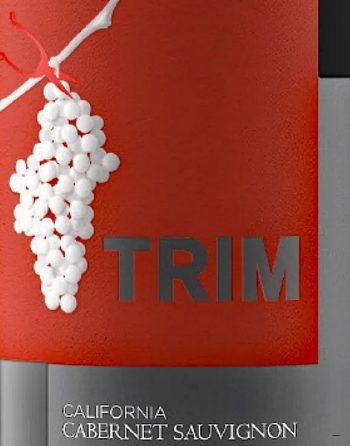
Trim Cabernet Sauvignon 2022, California
$26 I 90/100
UPC: 752183270915
You won’t see Ray Signorello’s name on the labels of Trim Chardonnay or Cabernet, but his Napa team is responsible for the wines. Trim is made without any additives. Right off the bat, this 87.5/12.5 mix of Cabernet Sauvignon and Petite Sirah from Lodi has some precision and freshness. It comes at a respectable 13.5 per cent alcohol and is packed with bright red cherry, blueberries and brown baking spice. As a consumer, you get to experience some severe Cabernet winemaking knowledge in a highly affordable cab.
Advertisement 5
Article content

Edge Cabernet Sauvignon 2021, Alexander Valley, Sonoma County, California
$49.99 I 91/100
UPC: 00094922951076
Edge is sourced exclusively from premium Alexander Valley vineyards. The 2021 blend is 87/9/2/1/1/ Cabernet Sauvignon/Petite Sirah/Merlot/Petit Verdot and Cabernet Franc. It is amazingly stylish for an entry-level premium Cabernet. While it’s rich in spice, black fruits, licorice, and figs, it has a savoury underside and supple tannins that make it pop for the money. More finesse and less oomph are rare at that level, but the Signorello style prevails even in the Alexander Valley. Drink or hold this classic restaurant steak wine. It is the best Edge we have tasted.
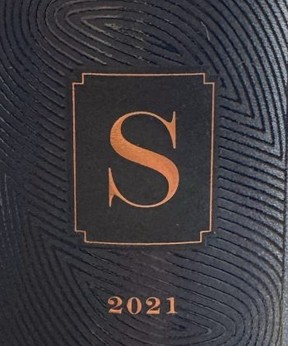
S By Signorello 2021, Napa Valley, California
$125 I 93/100
UPC: 752830477285
S by Ray Signorello is about fruit from areas beyond the Signorello estate. Working with acclaimed winemaker Priyanka French, they went to Howell Mountain, Rutherford, and St. Helena with a vision to produce a modern, crowd-pleasing, affordable Cabernet with class. Year three is 91/6/3/ mix of Cabernet Sauvignon/Merlot/Cabernet Franc. Black, purple and stuffed full of dense blackberry jam and red fruit aromas that spill onto the weighty palate with dense sweet tans and along chocolate, cedar scented finish. As big as it sounds and tastes, there is an inviting elegance that is more Bordelais than Napa.
Advertisement 6
Article content
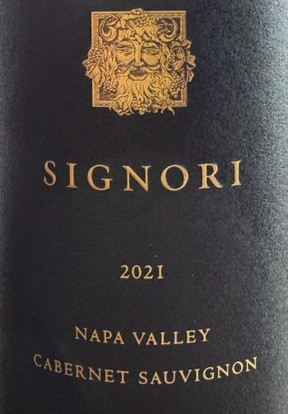
Signori 2021, Napa Valley, California
$245 I 93/100
UPC: 752830476882
Signori, or the gentleman, is a new label from Signorello. The 84/9/4/3 mix of Cabernet Sauvignon, Merlot, Cabernet Franc, and Malbec boasts a style that reflects the 30-year-old plus vines, soon to be certified organic, growing on the eastern side of the property on a relatively cooler slope. You can expect more aromatics, even some umami notes, ripe plums, sweet cherries, a bit of desert scrub, and tea leaves, expertly woven into a complex but reserved Cabernet that, in many ways, is reminiscent of a real gentleman. The grapes were de-stemmed, thoroughly hand sorted and fermented with native yeast and aged 18 months in 60 per cent new French oak.
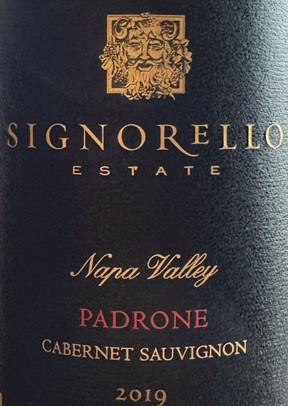
Signorello Padrone 2019, Napa Valley, California
$320 I 95/100
UPC: 752183270465
Padrone 2019 is an 86/8/3/3/ mix of Cabernet Sauvignon, Cabernet Franc, Merlot and Malbec selected from the best blocks on the estate’s rocky volcanic hillside soils. The winery mantra is the storyline of Padrone: finesse with power. It is texturally rich and packed with dense, sweet tannins. It displays the estate vineyards’ sublime terroir, plentiful black fruit, licorice, espresso, and subtle underlying floral and mineral notes. Padrone is wild fermented and spent 18 months in 55 per cent new French oak before being bottled unfined and unfiltered. 2019 marked the arrival of Priyanka French, Celia Welch and Steve Mathiasson, and the changes, while subtle, are welcome: a slightly leaner style and fresher length. A cooler fall allowed for more hang time, and the phenolics and acid levels are perfect. This is an excellent Napa Cabernet.
Advertisement 7
Article content
Calendar Items
You’re mistaken if you think Millennials and Gen Zs are driving online shopping for drinks. Most agree that millennial consumers (born between 1981 and 1996) will be crucial to the future of wine e-commerce, especially in emerging markets. Still, they are not the group responsible for online wine purchases. If you guessed Boomers and Gen X, you would be right. The Drinks Business reports, “It’s older drinkers dominating online alcohol purchases in wealthier economies, driven by their growing familiarity with digital tech. For example, in Australia, Italy, France, the U.K., and Spain, Boomers and Gen X now make up more than 60 per cent of online wine buyers.” I’m guessing the results would be similar in Canada if we lived in a single market with unfettered movement of goods that could be analyzed, but we don’t.
•••
Researchers at the University of New South Wales are touting food-based acids found in sherbet and winemaking that could make lithium-ion batteries more efficient, affordable and sustainable. Professor Neeraj Sharma, who led the study, claims the conventional method of producing graphite for batteries is quite unsustainable given that most of the graphite is lost in the processing steps while requiring high temperatures and powerful acids to reach purity, resulting in a massive environmental impact. The new technology replaces the material with compounds derived from food acids like tartaric and malic acid found in wine. A prototype battery cell has been built similar in size to those in mobile phones that store more energy than traditional graphite-based batteries, potentially allowing devices to hold more charge and require less frequent charging. Wine drinkers have always known that acid provides the biggest buzz in wine, so why couldn’t it be a central component in improving lithium batteries?
Advertisement 8
Article content
B.C. wine of the week
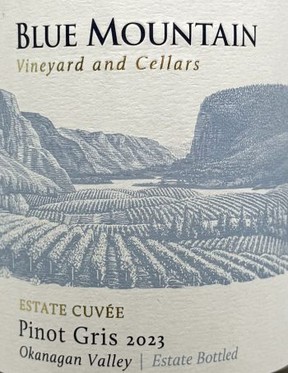
Blue Mountain Estate Cuvée Pinot Gris 2023, Okanagan Valley
$24.90 I 91/100
UPC: 626452201231
It is year 37 at Blue Mountain’s Okanagan Falls vineyard, where the family has tended two French Pinot Gris clones for nearly four decades. The fermentation begins with indigenous yeast in various vessels, including foudres, stainless steel, older French barrels, and larger puncheons. The result is a beautiful rendition of Gris drenched in ripe red apple, and citrus aromas and flavours spiked with lime pith and creamy lees, leading to a complex finish. It’s perfect to drink now but will age through 2026 with no issues.
Value wine of the week
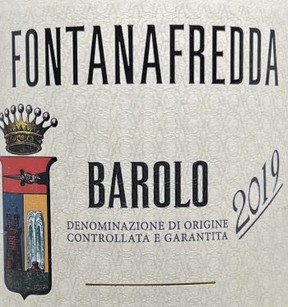
Fontanafredda Barolo 2019, Serralunga, Cuneo, Piedmont, Italy
$45.99 I 89/100
UPC: 8000174200024
Fontanafredda is a well-known name in Canada with a long sales history. The 2019 platinum reflects its program to deliver well-made, authentic Barolo that is easy on the wallet. The 2019 pitches red fruits (cherries and currants) mixed with earthy floral undertones streaked with classic leather and tar with firm but non-invasive tannins. It is affordable at half the price of what most Barolos sell for.
Advertisement 9
Article content
Recommended from Editorial
Bookmark our website and support our journalism: Don’t miss the news you need to know — add VancouverSun.com and TheProvince.com to your bookmarks and sign up for our newsletters here.
You can also support our journalism by becoming a digital subscriber: For just $14 a month, you can get unlimited access to The Vancouver Sun, The Province, National Post and 13 other Canadian news sites. Support us by subscribing today: The Vancouver Sun | The Province.
Article content
Source: vancouversun.com



